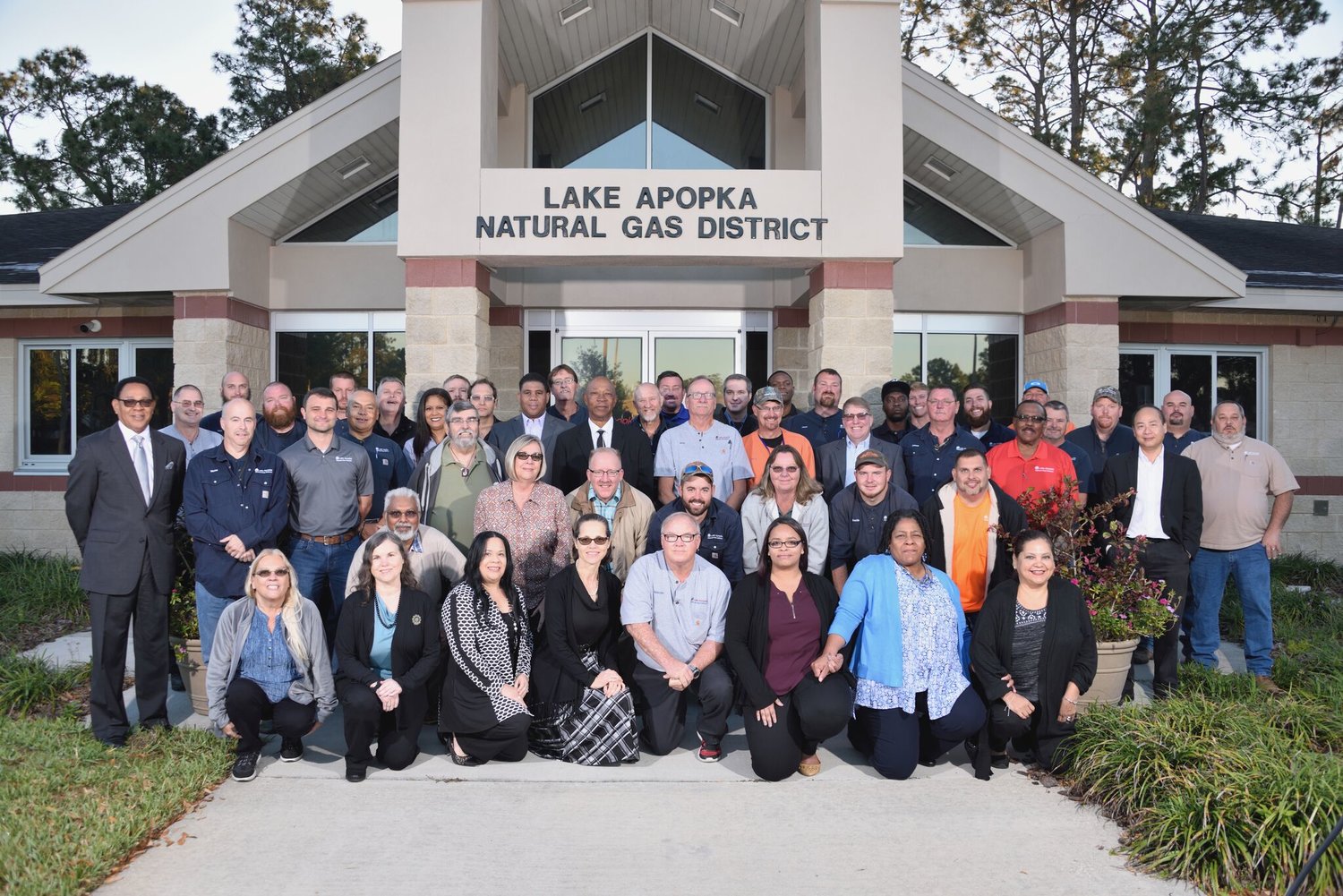Lake Apopka gas has become a topic of increasing concern for both environmentalists and local communities. As one of the largest lakes in Florida, Lake Apopka holds significant ecological and economic importance. However, the presence of gas in the lake raises questions about its origins, effects, and potential remedies. In this comprehensive article, we will explore the causes, consequences, and solutions related to Lake Apopka gas, ensuring you have a thorough understanding of this critical issue.
Lake Apopka, located in central Florida, is not only a natural wonder but also a vital ecosystem that supports diverse wildlife. However, the emergence of gas-related problems in the lake has drawn attention to the broader environmental challenges faced by the region. This article aims to provide you with actionable insights into how gas affects Lake Apopka and what steps are being taken to mitigate its impact.
Whether you are a resident of the area, an environmental enthusiast, or simply curious about the topic, this article will equip you with the knowledge you need to understand the complexities surrounding Lake Apopka gas. Let's dive deeper into the issue and explore potential solutions together.
Read also:Biff Buzbys Backyard The Ultimate Guide To Fun And Adventure
Table of Contents
- Introduction to Lake Apopka Gas
- Biological Impact of Gas on Lake Apopka
- Causes of Gas Formation in Lake Apopka
- Solutions to Address Gas Issues
- Impact on Water Quality
- Effects on Wildlife
- Role of Agriculture in Gas Formation
- Community Efforts to Combat the Issue
- Government Initiatives and Policies
- Future Prospects and Innovations
- Conclusion and Call to Action
Introduction to Lake Apopka Gas
Lake Apopka gas refers to the methane and other gases that have accumulated in the lake over the years. Methane, a potent greenhouse gas, is produced by the decomposition of organic matter in the lake's sediment. This process is exacerbated by the presence of excess nutrients, primarily from agricultural runoff and urban development.
Lake Apopka has faced numerous environmental challenges over the decades, including algal blooms, fish kills, and declining water quality. The presence of gas in the lake adds another layer of complexity to these issues, as it can further degrade the ecosystem and pose risks to human health. Understanding the origins and effects of gas in Lake Apopka is crucial for developing effective solutions.
Why Is Lake Apopka Gas a Concern?
The presence of gas in Lake Apopka is concerning for several reasons. Firstly, methane is a greenhouse gas that contributes to climate change. Secondly, the accumulation of gas can lead to explosive conditions, posing a risk to boaters and nearby residents. Lastly, gas formation is often a symptom of larger environmental problems, such as nutrient pollution and habitat destruction.
Biological Impact of Gas on Lake Apopka
The biological impact of gas in Lake Apopka is significant. Methane and other gases can alter the chemical composition of the water, creating conditions that are unfavorable for aquatic life. This section will explore how gas affects the ecosystem and the species that depend on it.
How Gas Affects Aquatic Life
- Reduces oxygen levels in the water
- Disrupts the food chain
- Causes stress and mortality in fish populations
Studies have shown that gas formation in Lake Apopka has led to a decline in fish populations and a shift in species composition. Native species that require high oxygen levels are particularly vulnerable, while invasive species that can tolerate low-oxygen conditions thrive.
Causes of Gas Formation in Lake Apopka
The formation of gas in Lake Apopka is primarily driven by human activities. Agricultural runoff, urban development, and wastewater discharge contribute to the excess nutrients in the lake, fueling the growth of algae and other organic matter. As this organic matter decomposes, it produces methane and other gases.
Read also:Myers And Smith The Ultimate Guide To Their Legacy Contributions And Impact
Key Contributors to Gas Formation
- Agricultural practices
- Urban runoff
- Wastewater treatment facilities
Addressing these sources of pollution is essential for reducing gas formation in Lake Apopka. Implementing best management practices in agriculture and improving wastewater treatment infrastructure can help mitigate the problem.
Solutions to Address Gas Issues
Solving the gas problem in Lake Apopka requires a multifaceted approach. This section will outline some of the most effective solutions being implemented to reduce gas formation and improve the overall health of the lake.
Innovative Solutions
- Restoration of wetlands to filter nutrients
- Implementation of low-impact development practices
- Use of biochar to sequester carbon
These solutions not only address the gas issue but also provide co-benefits such as improved water quality and enhanced biodiversity. By taking a holistic approach, stakeholders can achieve long-term success in restoring Lake Apopka.
Impact on Water Quality
The presence of gas in Lake Apopka has a direct impact on water quality. Methane and other gases can increase the acidity of the water, making it less suitable for aquatic life. Additionally, the decomposition of organic matter consumes oxygen, leading to hypoxic conditions that further degrade water quality.
Measuring Water Quality
Water quality in Lake Apopka is monitored using a variety of parameters, including dissolved oxygen, pH, and nutrient levels. Regular testing helps identify trends and assess the effectiveness of restoration efforts. Data from these tests can inform management decisions and guide future actions.
Effects on Wildlife
The effects of gas on wildlife in Lake Apopka are far-reaching. Native species that depend on the lake for habitat and food are particularly vulnerable to changes in water quality and gas levels. This section will explore how gas impacts wildlife and what can be done to protect these species.
Conservation Efforts
Conservation efforts in Lake Apopka focus on restoring habitats and protecting endangered species. By reducing gas formation and improving water quality, these efforts aim to create a healthier ecosystem that supports diverse wildlife. Collaborative initiatives between government agencies, non-profits, and local communities are essential for achieving success.
Role of Agriculture in Gas Formation
Agriculture plays a significant role in gas formation in Lake Apopka. Nutrient-rich runoff from farms contributes to the excess nutrients in the lake, fueling the growth of algae and other organic matter. This section will examine the relationship between agriculture and gas formation and highlight best practices for reducing agricultural impacts.
Sustainable Farming Practices
- Use of cover crops to reduce soil erosion
- Implementation of nutrient management plans
- Adoption of precision agriculture technologies
By adopting sustainable farming practices, farmers can minimize their impact on Lake Apopka and contribute to the restoration of the lake's ecosystem.
Community Efforts to Combat the Issue
Community involvement is crucial for addressing the gas issue in Lake Apopka. Local residents, businesses, and organizations are taking action to reduce pollution and improve water quality. This section will highlight some of the most impactful community efforts and how you can get involved.
Volunteer Opportunities
- Participate in lake clean-up events
- Join local conservation groups
- Advocate for policies that protect water resources
By working together, communities can make a meaningful difference in the health of Lake Apopka and its surrounding environment.
Government Initiatives and Policies
Governments at the local, state, and federal levels are taking steps to address the gas issue in Lake Apopka. Policies and initiatives aim to reduce pollution, restore habitats, and improve water quality. This section will provide an overview of key government actions and their impact on the lake.
Key Policies
- Clean Water Act
- Florida's Lake Management and Restoration Act
- Environmental Protection Agency regulations
These policies provide a framework for managing Lake Apopka and ensuring its long-term health. Continued support and enforcement of these policies are essential for achieving restoration goals.
Future Prospects and Innovations
The future of Lake Apopka gas management looks promising, with new technologies and innovations emerging to address the issue. This section will explore some of the most exciting advancements and their potential to transform the lake's ecosystem.
Emerging Technologies
- Bioremediation techniques
- Advanced wastewater treatment systems
- Remote sensing and monitoring tools
By embracing these innovations, stakeholders can achieve more effective and efficient solutions to the gas problem in Lake Apopka.
Conclusion and Call to Action
In conclusion, Lake Apopka gas is a complex issue that requires a collaborative effort to address. By understanding the causes, effects, and solutions related to gas formation, we can work towards restoring the health of Lake Apopka and its surrounding ecosystem. The success of these efforts depends on the involvement of all stakeholders, including government agencies, local communities, and individuals like you.
We invite you to take action by getting involved in community efforts, supporting policies that protect water resources, and spreading awareness about the importance of Lake Apopka. Together, we can make a difference and ensure a brighter future for this vital ecosystem.
Thank you for reading this article. We encourage you to leave a comment, share this article with others, and explore more content on our website. Let's continue the conversation and work towards a sustainable future for Lake Apopka and beyond.


